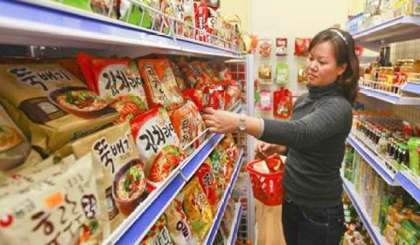Comprehensive co-ordination needed to curb inflation
The consumer price index (CPI) in January increased 0.46% over the previous month and 5.22% over the same period last year, placing more pressure on management agencies to restrain inflation this year.
 |
| The CPI is expected to rise by 4% in 2017. |
In the first month of the year, the price of transportation posted the highest rise, at 3.21%, which was mainly attributed to increases in the prices of petrol and oil on December 20, 2016 and in January 2017.
In the meantime, pharmaceuticals and healthcare services went up 1.01% and beverages and cigarettes were up 0.78% due to higher consumption for Tet.
Housing and construction materials increased 0.57% because of increasing demand for housing repairs during the remaining months before Tet. The price of education reported a rise of 0.47% which was blamed for the rise of school fees in six provinces and cities according to the Government Decree.
According to the Ministry of Finance’s Price Management Department, the prices of several goods and services including education, healthcare and water were directed upwards, pursuant to the roadmap, contributing to increasing the CPI and anticipating the possibility of higher inflation in 2017.
The Finance Ministry said that the CPI is expected to rise by 4% in 2017 which is lower than 2016, but many factors are forecast to affect the prices of goods and services this year, posing more challenges for price controls and regulations. The first challenge is the operation of monetary policy, which must meet the target of curbing inflation while supporting economic growth in the context of a high budget deficit and public debts.
In addition, the increase of base salaries and the regional minimum wage; the possible rise of oil and petrol prices on the world market; and the fluctuations of demand for and the supply of essential goods and exported goods will affect the domestic prices of goods and services.
As a State management agency, the Finance Ministry will intensify its management of prices while other ministries, localities and enterprises should strictly carry out the National Assembly’s Resolution on socio-economic development and the Resolution of the Government on regular meetings and relevant documents.
The ministry noted that the price management and operations in 2017 require comprehensive co-ordination from the beginning of this year.
(Source: NDO)
 về đầu trang
về đầu trang







